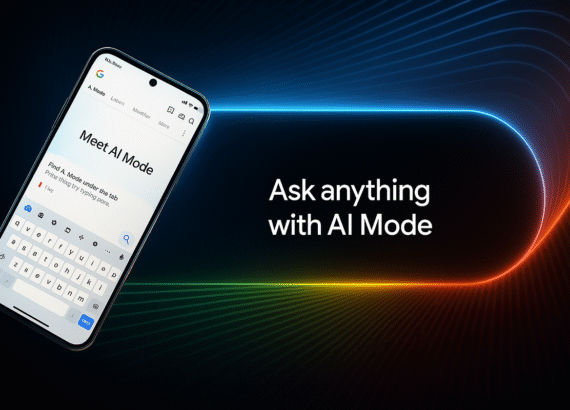Terrifyingly Realistic AI Voice Assistants: Is This the End of Privacy?
As technology continues to advance at an unprecedented pace, we find ourselves living in a world where AI voice assistants have become an integral part of our daily lives. These voice-activated virtual companions, such as Amazon’s Alexa, Apple’s Siri, and Google Assistant, have evolved to the point where their interactions with us are eerily realistic and human-like. While the convenience and capabilities of these AI voice assistants are undeniable, there is a growing concern about the implications they have on our privacy.
This article delves into the advancements of AI voice assistants, explores the intricacies of privacy concerns, examines real-life incidents of privacy breaches, and raises important ethical and legal questions. To navigate this complex landscape, we also discuss potential strategies for safeguarding personal information in the face of these terrifyingly realistic AI voice assistants.
1. Introduction: The Rise of Terrifyingly Realistic AI Voice Assistants
1.1 The Evolution of Voice Assistants
Remember the good old days when voice assistants were nothing more than robotic voices that struggled to understand a simple command? Well, hold onto your hats because things have changed—drastically. We are now witnessing the rise of terrifyingly realistic AI voice assistants that can not only understand our every word but also respond with an eerie level of human-like speech.
1.2 Impact and Popularity of AI Voice Assistants
These AI voice assistants have become an integral part of our lives. From Siri to Alexa, they have infiltrated our homes, phones, and even our cars. Need to find a recipe? Just ask your voice assistant. Curious about the weather? They’ve got you covered. AI voice assistants have become our reliable companions, providing instant information and performing tasks with ease. But as they become more realistic and sophisticated, concerns about privacy are starting to creep in.
2. Understanding the Advancements: How AI Voice Assistants Have Evolved
2.1 Natural Language Processing and Machine Learning
The advancements in natural language processing (NLP) and machine learning have played a pivotal role in the evolution of AI voice assistants. These technologies enable the assistants to understand and interpret human language, making communication between humans and machines more seamless than ever before. Through machine learning algorithms, these assistants continuously improve their ability to comprehend and respond to a wide range of queries and commands.
2.2 Deep Learning and Neural Networks
Deep learning, a subset of machine learning, has further enhanced the capabilities of AI voice assistants. Deep neural networks allow these assistants to analyze vast amounts of data, recognize patterns, and make accurate predictions. As a result, they can adapt to individual users’ preferences, learning from past interactions to personalize their responses and recommendations.
2.3 Training Data and Voice Synthesis
To achieve their astonishingly realistic voices, AI voice assistants rely on vast amounts of training data. They learn from extensive audio recordings, capturing the nuances and inflexions of human speech. With sophisticated voice synthesis techniques, they can mimic human voices with incredible accuracy, making it difficult to distinguish between an AI and a real person.
3. The Intricacies of Privacy: Exploring the Concerns Surrounding AI Voice Assistants
3.1 Invasion of Personal Space and Constant Surveillance
As AI voice assistants become more integrated into our lives, the lines between convenience and intrusion blur. The thought of an ever-present ear in our homes raises concerns about privacy and the potential for constant surveillance. Are our private conversations private anymore?
3.2 Potential Abuse and Unauthorized Access to Data
With the amount of personal information we share with voice assistants, the risk of data abuse and unauthorized access becomes a legitimate worry. What if a malicious entity gains access to our voice recordings and personal data? The implications are unsettling, ranging from identity theft to targeted advertising and manipulation.
Psychological Impact and Loss of Autonomy Living with AI voice assistants might also have psychological consequences. Constantly relying on a machine for everyday tasks and conversations can lead to a loss of autonomy and human connection. It raises questions about our increasing dependence on technology and the potential effects on our mental and emotional well-being.
4. Unsettling Incidents: Real-Life Examples of AI Voice Assistants Breaching Privacy
4.1 Personal Stories of Intrusion and Mishaps
There have been numerous reports of AI voice assistants capturing unintended conversations or misinterpreting commands, leading to embarrassing or even compromising situations. These personal anecdotes serve as a stark reminder of the potential pitfalls when AI voice assistants overstep their boundaries.
4.2 High-Profile Data Breaches and Security Lapses
AI voice assistants are not immune to security vulnerabilities. High-profile incidents have highlighted the risks of data breaches and security lapses, exposing users’ personal information. These incidents serve as wake-up calls, reminding us of the need to prioritize privacy and security when it comes to AI voice assistants.
While AI voice assistants undoubtedly offer convenience and efficiency, the implications for privacy and autonomy cannot be ignored. It’s important to balance technological advancements and protecting our personal lives. So the next time you ask your voice assistant a question, remember that there might be more at stake than just getting a quick answer.

5. The Ethical Dilemma: Balancing Convenience with Personal Data Protection
5.1 Privacy versus Convenience:
The Trade-offAh, the eternal struggle! We all love the convenience that AI voice assistants bring to our lives. They can order pizza, play our favourite songs, and even tell us jokes when we’re feeling down. But what about the cost? We can’t ignore the fact that these helpful little bots are constantly listening and collecting our data. It’s a trade-off between privacy and convenience that we wrestle with every day.
5.2 Ethical Considerations in AI Voice Assistant Development
When it comes to developing AI voice assistants, ethical considerations are of utmost importance. The companies behind these technologies need to take a hard look at how they handle user data and ensure that it is done responsibly. They should prioritize transparency, data minimization, and user control over their personal information. After all, nobody wants their conversations broadcast to the world.
5.3 User Awareness and Informed Consent
As users, we need to be more aware of the potential privacy implications of using AI voice assistants. It’s easy to get caught up in the fun and convenience they offer, but it’s crucial to understand what we’re signing up for. We should actively seek out information about how our data is being used and make informed choices about the level of privacy we’re comfortable with. Informed consent is key in ensuring that our personal information is treated with the respect it deserves.
6. Legal Frameworks: Current Regulations and Future Implications for AI Voice Assistants
6.1 Existing Privacy Laws and their Applicability
The legal landscape surrounding privacy is constantly evolving, and AI voice assistants fall under the purview of existing privacy laws. These laws, such as the General Data Protection Regulation (GDPR) in Europe, outline the rights and responsibilities of both users and companies when it comes to personal data. While these regulations are a step in the right direction, there is still work to be done to address the unique privacy challenges posed by AI voice assistants.
6.2 Legislations Addressing AI Voice Assistant Privacy
Recognizing the need for specific regulations concerning AI voice assistants, some countries are taking the lead in implementing legislation. For example, California recently passed the California Consumer Privacy Act (CCPA), which gives residents more control over their personal information. These developments are encouraging, but we should also be mindful of striking the right balance between regulation and stifling innovation.
6.3 Anticipating Future Regulatory Challenges
As AI voice assistants become more advanced, we can expect that regulators will face new challenges in protecting user privacy. Governments and technology companies need to work together to stay ahead of these challenges. Proactive measures, such as conducting privacy impact assessments and fostering collaboration between industries, will be essential in preparing for the future of AI voice assistant privacy.
7. Mitigating Privacy Risks: Strategies for Safeguarding Personal Information
7.1 Enhanced Security Measures for AI Voice Assistants
To ensure the safety of our personal information, AI voice assistant developers must invest in robust security measures. Encryption and authentication protocols are crucial in safeguarding data from unauthorized access. Additionally, regular security audits and updates to address vulnerabilities should be a top priority.
7.2 User Controls and Privacy Settings
Empowering users with greater control over their data is vital. AI voice assistants should provide clear and accessible privacy settings, allowing users to choose the level of data collection and determine how their information is shared. Transparency should be the game’s name, allowing users to make informed decisions about their privacy.
7.3 Encrypted Data Transmission and Storage
Encrypting data during transmission and storage is another essential safeguard against potential privacy breaches. By employing cutting-edge encryption techniques, AI voice assistant companies can minimize the risk of unauthorized access to personal information. This extra layer of protection ensures that our conversations remain confidential, even with an AI ear listening in.
8. Concluding Thoughts
While the rise of AI voice assistants may present privacy concerns, it’s not necessarily the end of privacy as we know it. With ethical considerations, user awareness, and strong regulations, we can strike a balance between convenience and personal data protection. By implementing enhanced security measures, providing user controls, and encrypting data, we can mitigate the privacy risks associated with these incredible technologies. So, let’s enjoy the convenience they offer, but not at the expense of our privacy.
As we consider the implications of terrifyingly realistic AI voice assistants and the potential threats they pose to our privacy, it becomes clear that navigating this landscape requires a delicate balance between convenience and personal data protection. While regulations and legal frameworks strive to keep pace with technological advancements, users need to be proactive in understanding and managing the privacy settings and controls available to them. By staying informed and advocating for privacy-conscious practices, we can collectively shape the future of AI voice assistants, ensuring that they serve as helpful companions without compromising our fundamental right to privacy.
FAQ
1. Are AI voice assistants constantly listening to our conversations?
AI voice assistants like Alexa, Siri, and Google Assistant are designed to listen for a trigger word or phrase to activate and respond to user commands. While they are always listening for these triggers, they typically discard or ignore the audio data until activated. However, concerns about accidental activations and potential eavesdropping persist, and it’s essential to review privacy settings and understand the device’s data storage and retention policies.
2. Can AI voice assistants store or share our personal information?
AI voice assistants are designed to collect and process data to improve their functionality and provide personalized experiences. This includes storing user commands, preferences, and sometimes even sensitive information. While trusted companies have privacy measures in place, there is always a risk of data breaches or misuse. Users should carefully review privacy policies, consider the implications of sharing personal information, and regularly assess the permissions granted to AI voice assistants.
3. What ethical considerations surround AI voice assistants?
AI voice assistants raise ethical concerns regarding user privacy, consent, and data ownership. Questions also arise about the potential for manipulation, bias, and the impact on human interaction. Developers and companies must grapple with the responsibility of creating AI systems that respect user autonomy and privacy, while users must be informed about the ethical implications and advocate for transparent and ethical practices
4. How can I protect my privacy while using AI voice assistants?
To protect your privacy while using AI voice assistants, consider the following steps: review and adjust privacy settings, be cautious about sharing sensitive information, regularly review stored data and delete unnecessary recordings, use strong and unique passwords for associated accounts, and stay informed about updates, security patches, and best practices recommended by the device manufacturers.
Thank you for reading 🙂
If you want to build your website at an affordable price contact: www.nextr.in
Read this: How To Become A Web Developer?


















